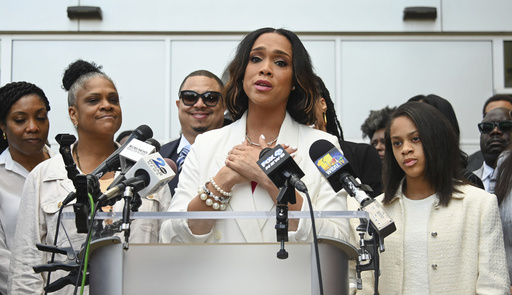In a significant legal development, a federal appeals court vacated the mortgage fraud conviction of Marilyn Mosby, the former Baltimore State’s Attorney, known for prosecuting police officers in a high-profile case involving the death of Freddie Gray. Despite this reversal, the court upheld two perjury convictions related to Mosby’s real estate transactions.
The 4th U.S. Circuit Court of Appeals, in a 2-1 vote, found that the instructions given to the jury regarding the mortgage fraud case were “erroneously overbroad,” particularly concerning the issue of the proper court venue. This case involved a property Mosby purchased in Florida, yet it was tried in Maryland. Consequently, Judge Stephanie Thacker noted that the forfeiture order associated with Mosby’s Longboat Key condo, deemed to be acquired through alleged mortgage fraud, was also nullified.
However, Judge Paul Niemeyer partially disagreed, arguing that the government had presented adequate evidence to establish the crime’s commission in Maryland, and maintained that the district court’s venue instructions were appropriate, suggesting he would have upheld the original judgment.
While she was found guilty of perjury, the appeals court found no wrongdoing in the initial court’s handling of these charges. Mosby’s assertions that jurors were misled by the evidence were not substantiated according to the court. “The district court did not err in permitting the Government to introduce evidence regarding how Mosby used funds from her retirement accounts,” the court explained, emphasizing the relevance of this information to whether she faced “adverse financial consequences,” and ruling that the evidence’s probative value outweighed any risk of jury confusion.
Mosby, who at 45 is a notable figure in Baltimore’s legal scene, had already completed a sentence that included 12 months of home confinement, along with 100 hours of community service and a three-year supervised release. Her conviction stemmed from allegations that she misrepresented her financial situation to withdraw retirement funds prematurely during the COVID-19 pandemic and claimed her own funds as a gift in a property transaction.
Serving as Baltimore’s state’s attorney from 2015 to 2023, Mosby became a national figure during the tumultuous aftermath of Freddie Gray’s death in 2015, which sparked widespread unrest. Although initial charges were brought against six officers, three were acquitted and charges against the others were dropped under her direction.
In 2020, Mossby withdrew $90,000 from a deferred compensation plan, utilizing these funds for down payments on properties in Florida. The prosecution asserted that she violated provisions of the Coronavirus Aid, Relief and Economic Security Act by falsely claiming her business was harmed by the pandemic, enabling her to access these funds.
Mosby’s defense argued that the funds were a part of her income and highlighted that she paid all applicable penalties and taxes. However, the government contended that the funds remained city property until she was legally entitled to them, and her actions constituted a breach of trust during the pandemic.
The overturned mortgage fraud charge involved Mosby submitting a misleading $5,000 “gift letter” during the acquisition of her Longboat Key property, asserting the money was a gift from her husband when it was, in fact, her own. Despite these legal challenges, Mosby sought a presidential pardon last year, and her cause was supported by the Congressional Black Caucus. Nevertheless, her bid for clemency from President Joe Biden remains unfulfilled.


